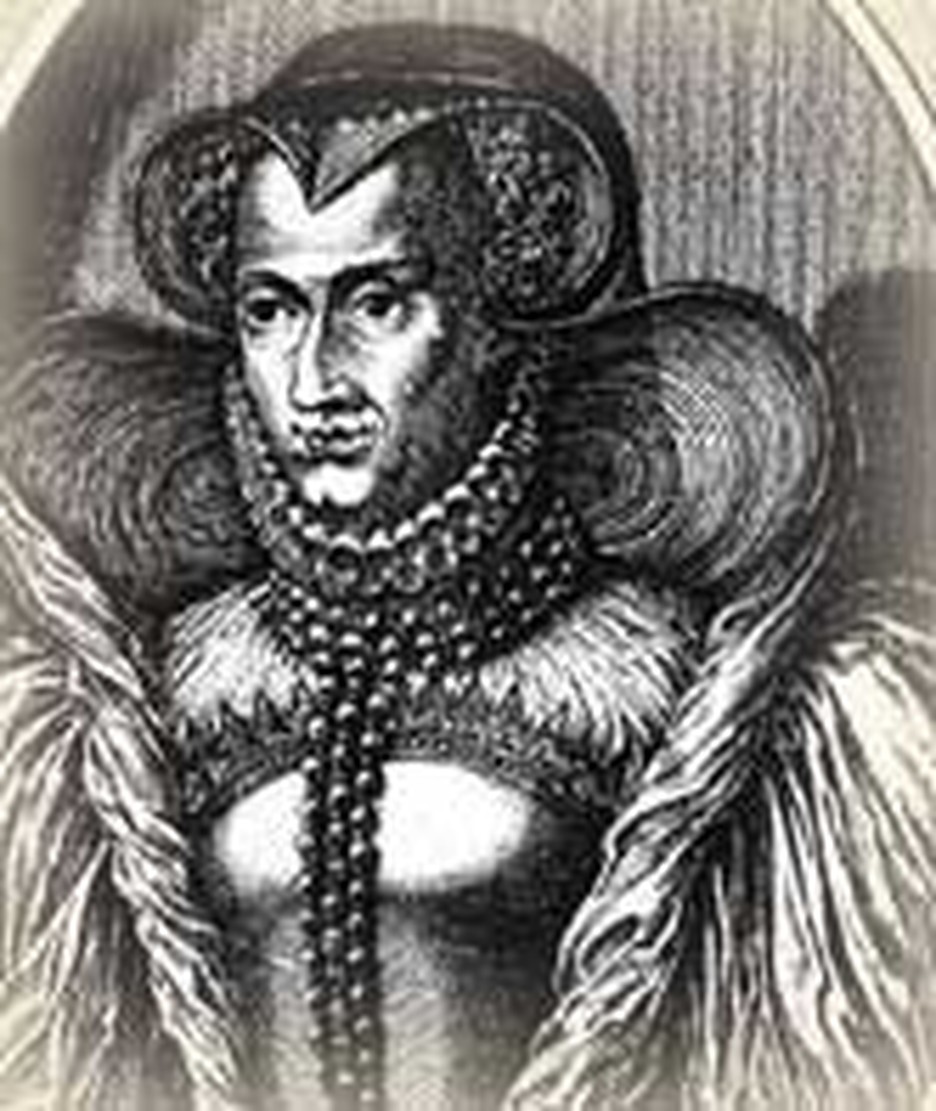
When Jeanne D'Albret, Queen of Navarre (on the Spanish-French border), made up her mind, there was no arguing with her. She intended for the ordinances that she published in Béarn on this date, January 15, 1572, to be obeyed.
If her citizens doubted her resolve, they need only remember the day, thirty-two years before, when she was carried kicking to the wedding altar, a twelve-year-old girl with a mind of her own. Thrashings hadn't stopped her from writing that she would not be bound by the ceremony. Once "married," she refused to crawl between the sheets with her "husband." Instead she ran away, insisted the Pope absolve the forced union, and married Antoine. No, she wasn't one to fool with.
Béarn (now the Pyrénées-Atlantiques), was a French province on the Spanish border. It suffered greatly in the conflict between the Roman Catholic church and the Protestant Huguenots. Jeanne championed the Protestants. As a result, Pope Pius IV accused Jeanne of heresy, ordered her to appear in Rome for examination and warned that if she did not, her lands would be forfeited to the first Catholic prince who could conquer them. Although the French government persecuted Protestants, it protested that the Pope had no authority to put French territory up for grabs. The Pope refused to change the wording of his citation.
Jeanne didn't buckle although she knew that she was in for more than a thrashing. She had to flee from her palace and lost all her lands. When Antoine, who had favored the Huguenots, rejoined the Catholic church, husband and wife were separated politically, physically, and spiritually. Antoine and his allies found ways to keep Jeanne's son (who became Henry IV of France) away from her. Paris appointed Blaise de Montluc to terrorize the Protestants of Béarn. Jeanne even had to pawn her jewels to Elizabeth I of England for gold.
With the gold, she hired Gabriel de Logres, Count of Montgomery, to command her armies. Escorted by only 200 cavalry, Logres dodged swarms of Catholic troops, made a bold dash to Béarn, and brilliantly defeated the armies thrown against him.
By September, 1571, Jeanne was back on her throne. Two months later she proposed her Code of Ecclesiastical Ordinances to the Béarn legislature. "[It] is my resolve," she wrote to her friend the Viscount de Gourdon, "that the Reformed religion shall remain dominant throughout my sovereignties, all superstitious and idolatrous practices being from henceforth suppressed. It is my will that all my subjects...shall attend public worship, under certain penalties; and that all persons who absent themselves from holy communion more than once, without good and reasonable excuse, shall suffer banishment."
She put teeth in the law. An absence from public worship would cost a poor man five sous (about 50¢), a rich man ten. A second offense was fined five livres (about $200). A third offense carried the penalty of imprisonment. Two absences from communion (an indication that the person preferred the Catholic Mass to the Protestant Lord's Supper) brought two years of banishment.
It is a shame that all of Europe's rulers, still thinking in Medieval terms, had similar laws--usually far harsher. Jeanne justified herself because her Catholic subjects had plotted to throw her off the throne and had tortured and murdered Protestants who were loyal to her (her armies did the same to Catholics when they recaptured the area).
The year that Jeanne's code was published, she died. She was just 44. Several ministers examined her faith as she lay dying and found her emphatic that her hope for eternity lay in Christ alone. No one tried to argue her out of that assurance. Unable to speak at the end, she smiled when a minister read from Psalm 31, "In thee, O Lord, do I put my trust." Hundreds of years later she was remembered by many as a good queen who founded colleges, hospitals, and schools, brought prosperity to Béarn, stamped out alcoholism, gambling, and usury, and inspired troops with bold words.
Bibliography:
- Anderson, James. Ladies of the Reformation; memoirs of distinguished female characters. London: Blackie and son, 1857.
- Deen, Edith. Great Women of the Christian Faith. New York: Harper and Bros, 1959.
- Durant, Will and Ariel. The Reformation. The Story of Civilization.
- "Franc," "Livre," and "Sou." Encyclopedia Americana. Chicago: Encyclopedia Americana, corp., 1956.
Last updated May, 2007.


